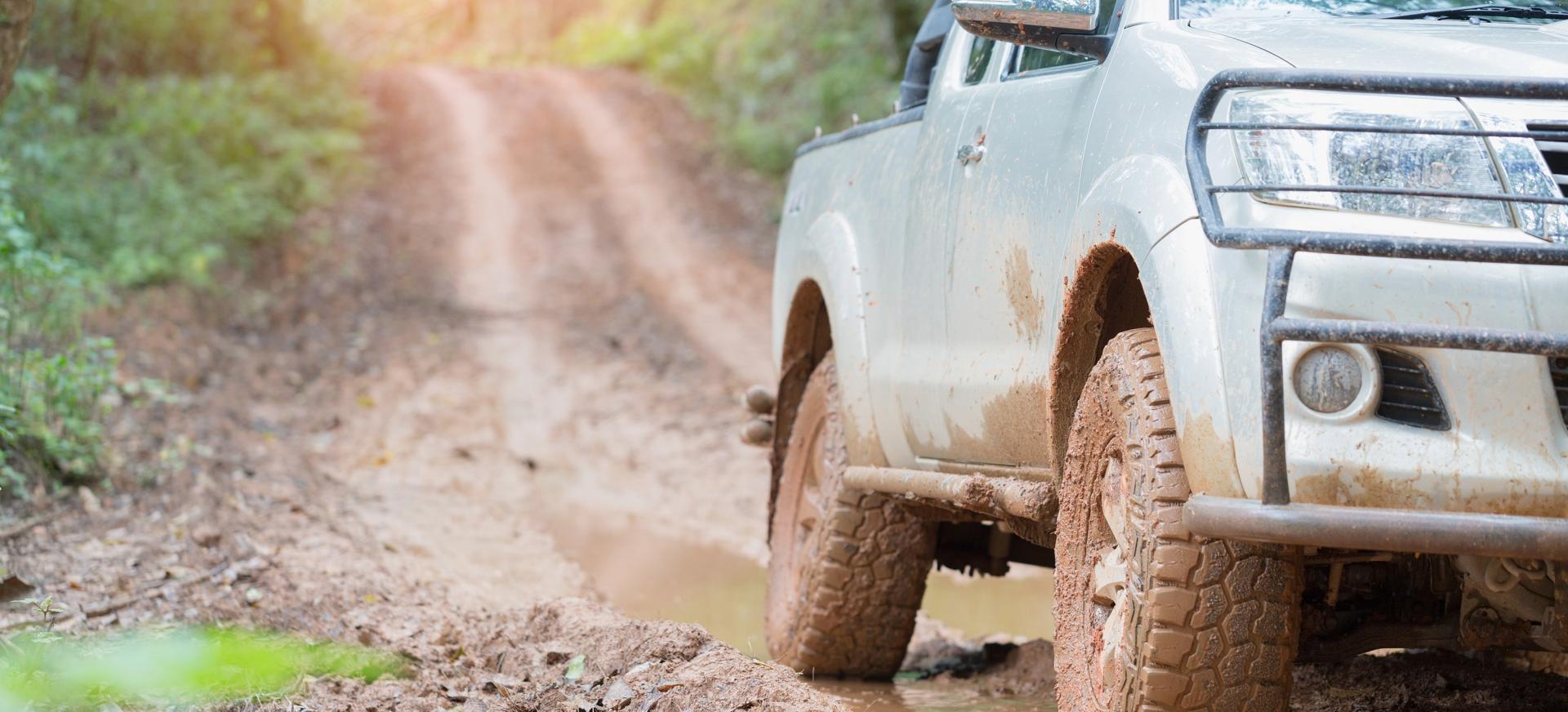
Top 5 Offroad Rookie Mistakes
Posted in 4x4xmore Adventures
Five Offroad Rookie Mistakes You Can Easily Avoid
Everybody had a first time off the bitumen, though some come better prepared than others. Over the years, we've seen plenty of people doing it the hard way just by missing a few key pieces of information.
If you're worried about sticking your foot in it on your first time off-road, make sure to keep these five tips in mind to give you a bit of confidence and to avoid making a rookie mistake of your own.
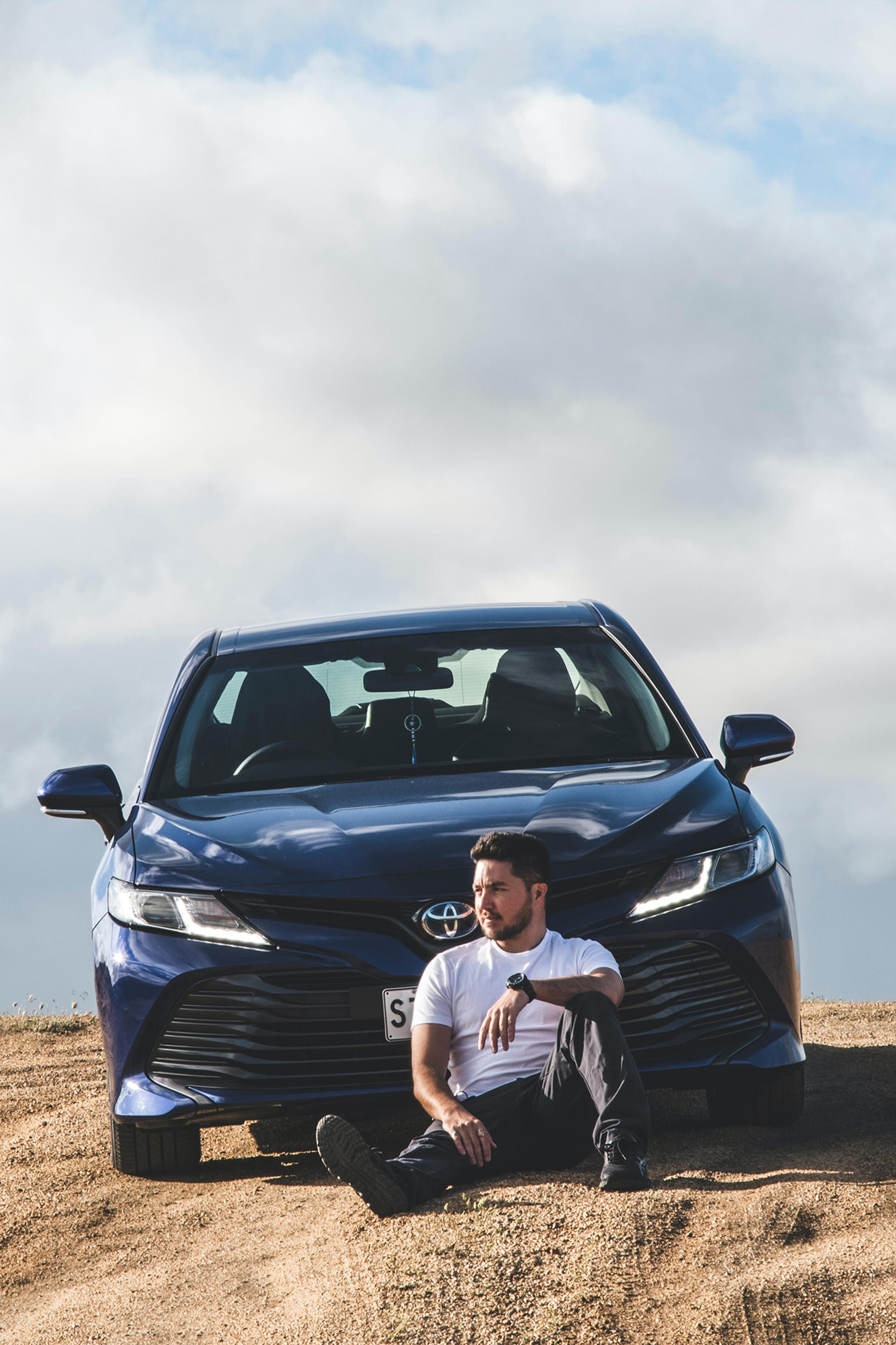
Driving the wrong kind of vehicle
A regular hatchback, sedan, or even some SUVs won’t get you through rutted-out mountain tracks or soft beach access. One of the biggest mix-ups we see is people thinking all-wheel drive (AWD) is just as capable as four-wheel drive (4WD).
Most AWD “soft roaders” are built for the occasional dirt road, not serious off-roading. Take one onto the beach, and chances are you’ll get bogged before you even hit the sand.
The problem? AWDs usually don’t have enough ground clearance, low-range gearing, proper suspension, or off-road tyres. Without these, they just aren’t up to the job. Push them too far, and you’re asking for damage—and a long day of trying to get unstuck.
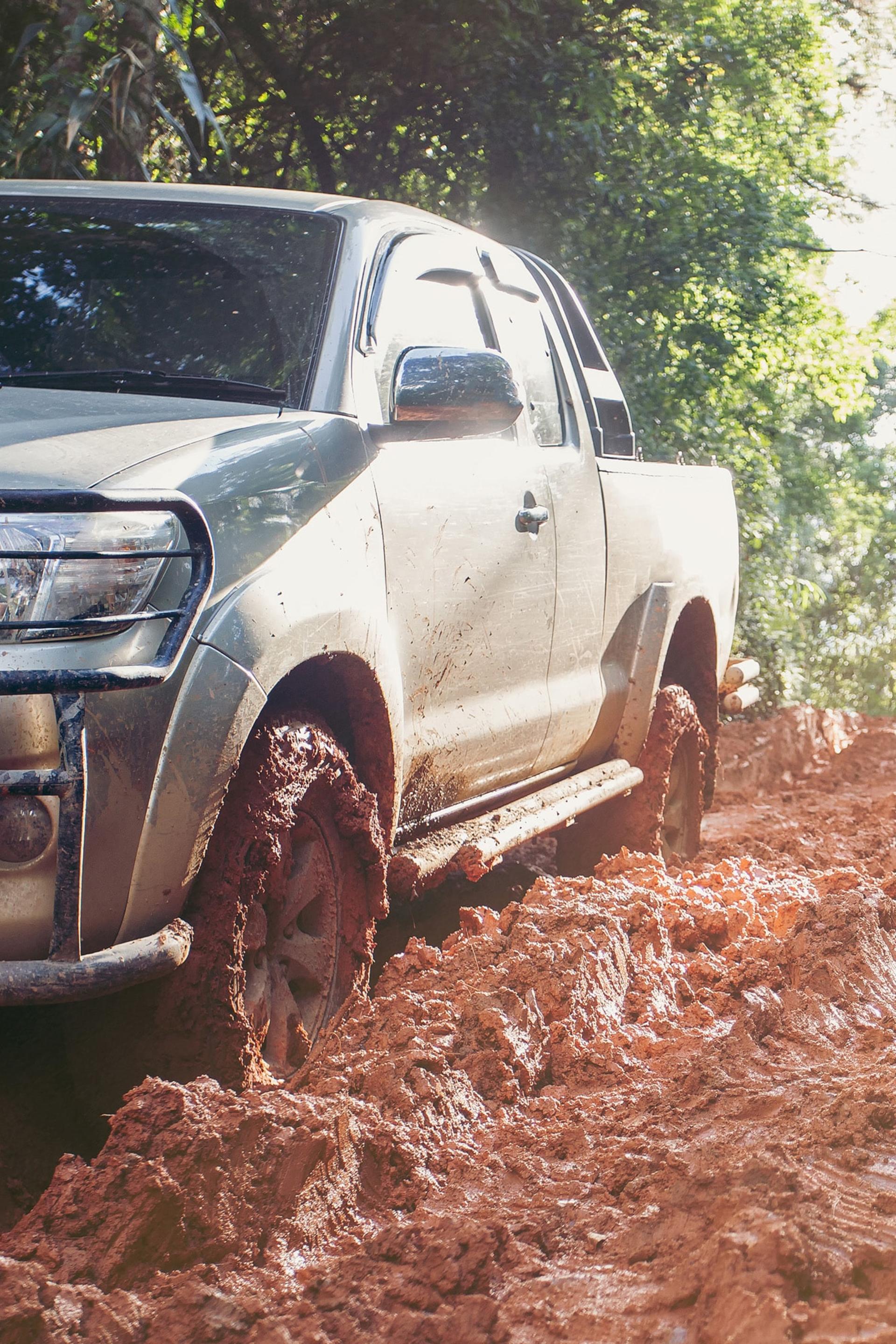
Going unprepared
Heading off-road takes a bit of planning—not just for your 4WD but also for your gear and destination.
Make sure you’ve got the right permits for where you’re headed, and drop your tyre pressures to suit the terrain. Before you go, check in with locals or National Park condition reports to get the latest on track and tide conditions. Nothing worse than turning up to a closed track or hitting the beach at high tide.
Think about recovery gear too—if you get bogged, will you be able to get yourself out? A set of recovery boards, a snatch strap, a winch, or at least a shovel can make all the difference.
If something goes wrong, you could be stuck for a while, so pack plenty of water, food, and any meds you might need. Weather can turn quickly, and a dry track can become a muddy mess in no time.

Overloading your car
Just because it fits doesn’t mean you should take it.
Once you’ve loaded up your boot or ute, take a step back and check your suspension. If your rig’s sagging, you might struggle with clearance over rough terrain.
More importantly, check your vehicle’s load limits—especially your roof rack. There’s a cap on what both your roof and the rack can safely handle, and overloading up top is a recipe for disaster. It’s not just illegal—you risk losing your rack, damaging your roof, or even hitting low branches. Plus, a top-heavy 4WD is far more likely to tip over.
If you’re towing, weight management is even more critical. Make sure you're within your vehicle’s maximum load and towing limits, and do a few test runs to get the balance right. If you're overloaded and something goes wrong, not only is it dangerous, but your insurance claim could be knocked back.
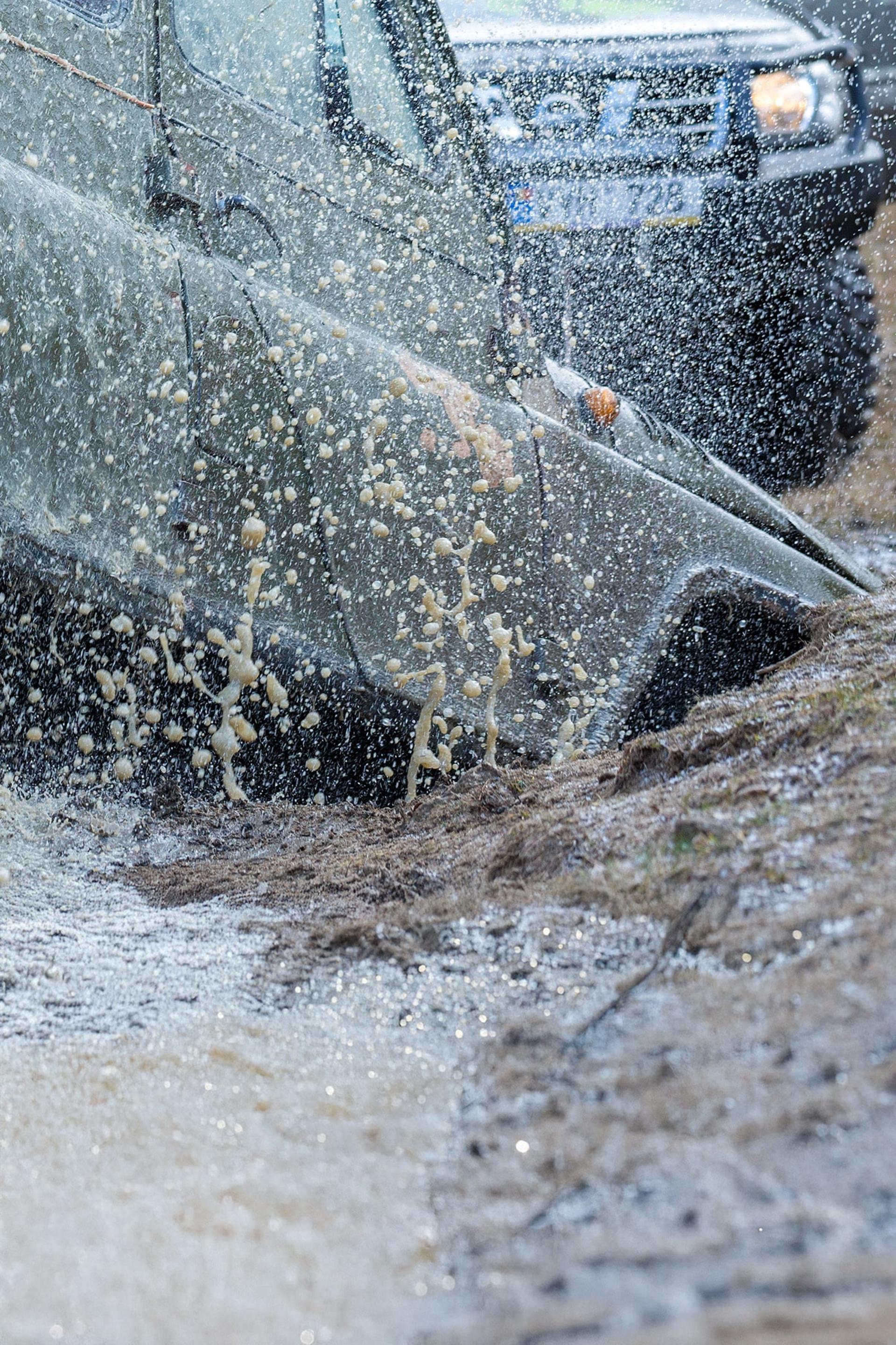
Overestimating your abilities
Everyone has to start somewhere, and asking questions is always a good thing. But thinking you already know it all is one of the quickest ways to get into trouble. Young or inexperienced 4WDers often overestimate their skills—or their vehicle’s capability—leading to damage or even serious accidents.
A few golden rules: watch your speed, never go alone, and assess every obstacle before tackling it -that means walking a creek crossing before driving through. Don’t stray off the track if you don’t know what’s ahead, and never head out without the right gear, a recovery mate, proper communication, and an exit plan.
And don’t let random advice lead you astray. Internet experts and social media warriors love to dish out tips, but they’re often way off the mark.
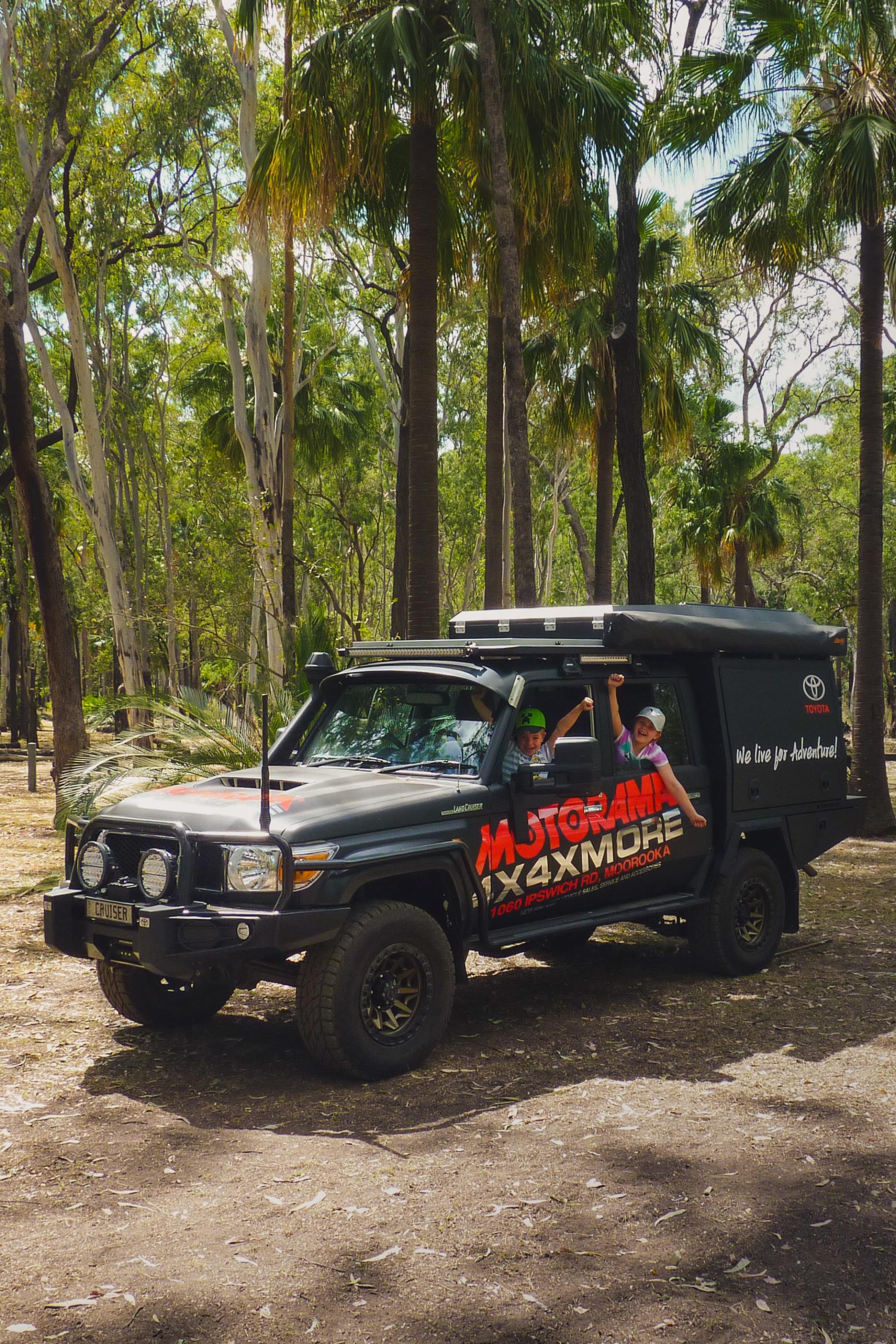
Forgetting to have fun
The biggest rookie mistake? Stressing so much that you forget to enjoy the trip.
Plenty of people worry about what’s ahead—breaking something, getting bogged, or making a mess of their rig. But unlike the dramatic posts on Facebook, if you prepare properly and take it slow, chances are you’ll have an awesome adventure with little to worry about.
Scratches? They’ll happen. A bit of mud? That’s a given. Getting stuck? Maybe—but that’s part of the fun.
So, relax, take it all in, and make some great memories. And if you come across someone in a bit of strife, lend a hand if you can—what goes around comes around out here!
Get Out There and Learn from Every Drive
Off-roading is all about experience—every trip teaches you something new. Avoiding these rookie mistakes will help you stay safe, protect your vehicle, and make the most of your adventures.
But don’t be afraid to get out there, challenge yourself, and learn along the way. With the right knowledge, preparation, and mindset, you’ll gain confidence and become a more capable off-roader in no time.
Join Motorama 4x4xMORE
One of the best ways to gain experience if by joining a Motorama 4x4xMORE Tag-Along Tour. If you have either bought or regularly service your 4x4 at a Motorama dealership or service centre, you gain exclusive access to these trips.
We run monthly day trips to great destinations across south-east Queensland hosted by experienced trip leaders. Learn how to use your 4x4 safely and effectively, but most of all, while having a good time doing so.
Looking to get your own 4x4? Check out the range of models available across the Motorama group.



